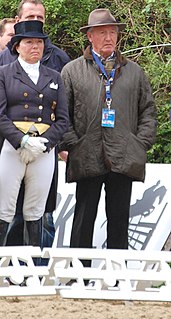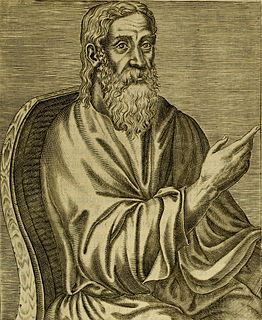A Quote by Carl Sagan
Science ... looks skeptically at all claims to knowledge, old and new. It teaches not blind obedience to those in authority but to vigorous debate, and in many respects that's the secret of its success.
Related Quotes
Those who speak of blind obedience may appear to know many things, but they do not understand the doctrines of the gospel. There is an obedience that comes from a knowledge of the truth that transcends any external form of control. We are not obedient because we are blind, we are obedient because we can see.
The values of science and the values of democracy are concordant, in many cases indistinguishable. Science and democracy began - in their civilized incarnations - in the same time and place, Greece in the seventh and sixth centuries B.C. . . . Science thrives on, indeed requires, the free exchange of ideas; its values are antithetical to secrecy. Science holds to no special vantage points or privileged positions. Both science and democracy encourage unconventional opinions and vigorous debate. Both demand adequate reason, coherent argument, rigorous standards of evidence and honesty.
For this knowledge of right living, we have sought a new name... . As theology is the science of religious life, and biology the science of [physical] life ... so let Oekology be henceforth the science of [our] normal lives ... the worthiest of all the applied sciences which teaches the principles on which to found... healthy... and happy life.
The modern susceptibility to conformity and obedience to authority indicates that the truth endorsed by authority is likely to be accepted as such by a majority of people, who are innately obedient to authority. This obedience-truth will then become a consensus-truth accepted by many individuals unable to stand alone against the majority. In this way, the truth promulgated by the propaganda system - however irrational - stands a good chance of becoming the consensus, and may come to seem self-evident common sense.
The Christian religion, [Pascal] claims, teaches two truths: that there is a God who men are capable of knowing, and that there is an element of corruption in men that renders them unworthy of God. Knowledge of God without knowledge of man's wretchedness begets pride, and knowledge of man's wretchedness without knowledge of God begets despair, but knowledge of Jesus Christ furnishes man knowledge of both simultaneously.
The man smiled at him a sly smile. As if they knew a secret between them, these two. Something of age and youth and their claims and the justice of those claims. And of their claims upon them. The world past, the world to come. Their common transciencies. Above all a knowing deep in the bone that beauty and loss are one.
It is the close observation of little things which is the secret of success in business, in art, in science, and in every pursuit in life. Human knowledge is but an accumulation of small facts made by successive generations of men--the little bits of knowledge and experience carefully treasured up by them growing at length into a mighty pyramid.


































